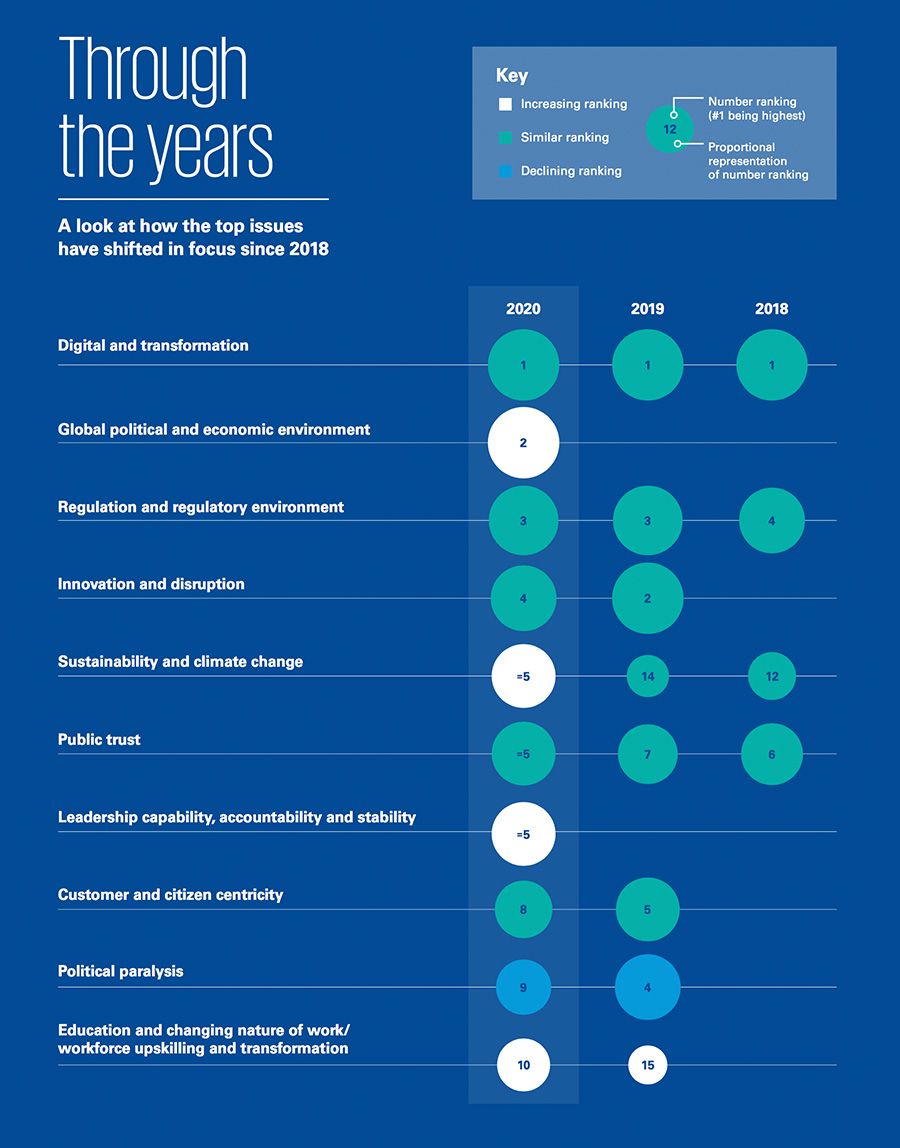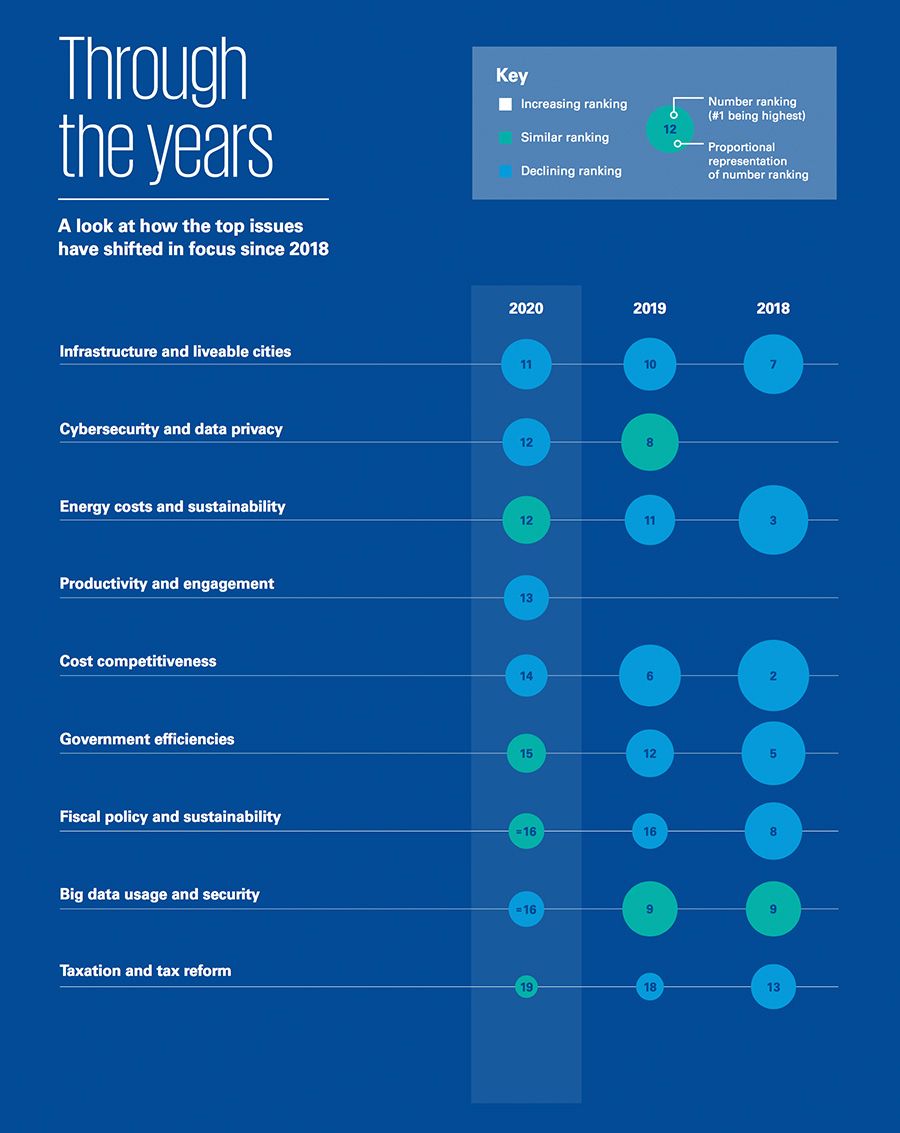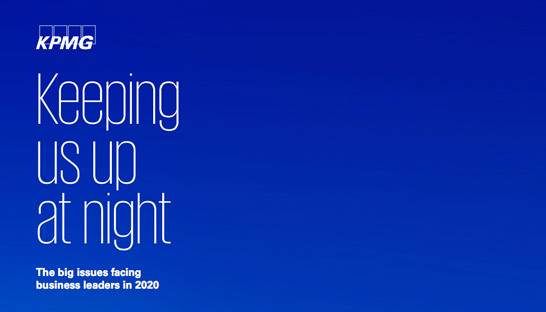[ad_1]
In 2020, most Australian businesses remain concerned about the disruptive nature of digital transformation, while an increasing number of business leaders are concerned about the global political and economic environment. This is according to a new survey by KPMG.
The survey claims it “cut through the noise” as market watchers passionately debate the future of Australia’s economy. On the eve of the new year, KPMG spoke to C-suite business leaders for three consecutive years to identify the major market forces that are at the top of their concern list.
Reports from earlier this year suggested that despite the number of disruptive forces making their way through global markets, Australia’s business leaders remained relatively positive. in their view. Most executives today see changes such as digitization as opportunities rather than challenges.

However, digital transformation comes with a lot of investment and consequently a lot of uncertainty, and business leaders in Australia seem to be aware of this. Digital transformation has now topped the list of concerns for all three years that KPMG she did the research.
“The fact that digital transformation has once again topped the list is understandable, as it is both deeply necessary and extremely difficult. There are two key drivers of digital transformation: maintaining continued relevance in the market by continuing to meet customer expectations, and reducing operating costs,” the report said.
Cost has been one of the main barriers to digital transformation for many in Australia, although recent analysis has shown that businesses that have taken the leap have benefited.. KPMG reports that businesses appear to be realizing the level of innovation and reinvention required to drive a successful digitization process.
However, concerns about innovation and disruption seem to have dropped down the list of concerns this year. Where these two topics previously followed digital transformation in second place, this year they slipped to fourth place, losing their place due to concerns about the global political and economic environment.

According to the authors, business leaders are trying to remain calm as they observe the global decline of “economic logic” and its replacement by “political logic,” citing the US-China trade war and Brexit as prime examples of this shift. Such a shift is being promoted as the fruit of instability, which is hardly good for business.
Experts and business leaders alike fear that the current level of polarization is likely to create another Cold War-like scenario in the future, with the global business environment forced to choose between economic engagement with the United States and trade with China.
Amidst this uncertainty, KPMG highlights that there are also likely to be opportunities to establish new business relationships and supply chain structures. Here comes the third biggest concern for Australian businesses in the new year – the issue of regulatory issues.
Various sectors of the Australian economy came under intense scrutiny last year, from the Royal Commission into the banking sector to revelations of poor auditing practices by the Australian Securities and Investments Commission. This forced many businesses to make structural changes.
“This trend towards more – and tighter – regulation is almost guaranteed to continue in 2020. The government will remain under pressure from the community to toughen up, introduce more laws and enforce them more vigorously,” the report said.
Other major concerns in Australia include addressing sustainability and climate change, overcoming faltering public confidence, developing strong leadership skills, as well as the ever-present need to upskill the workforce.
[ad_2]


